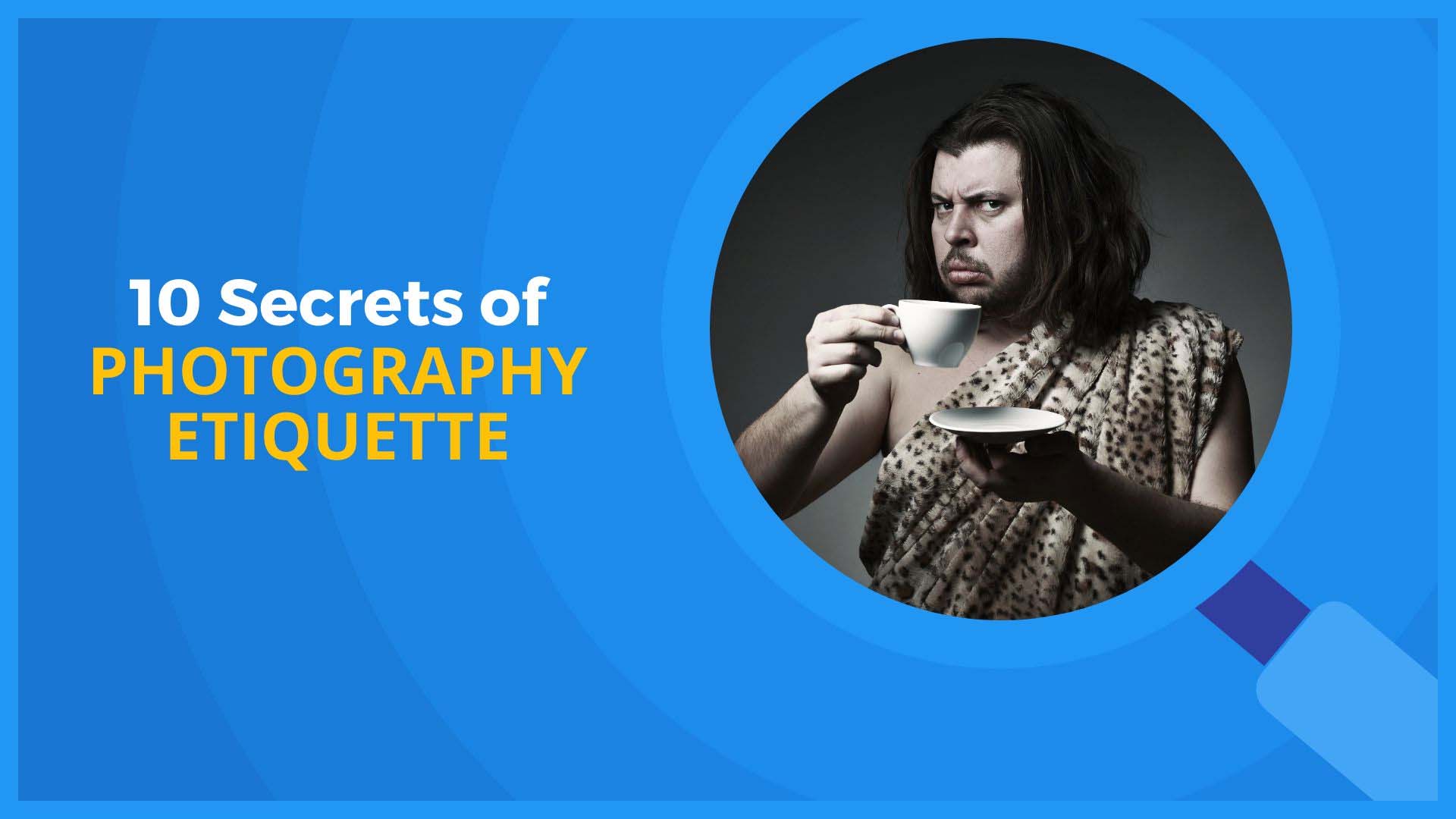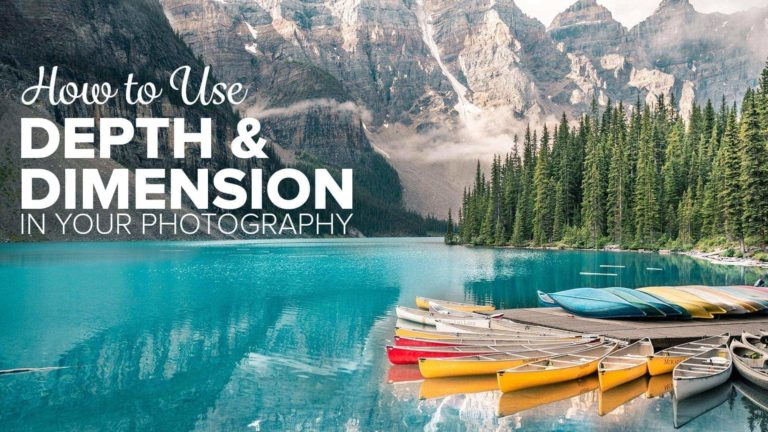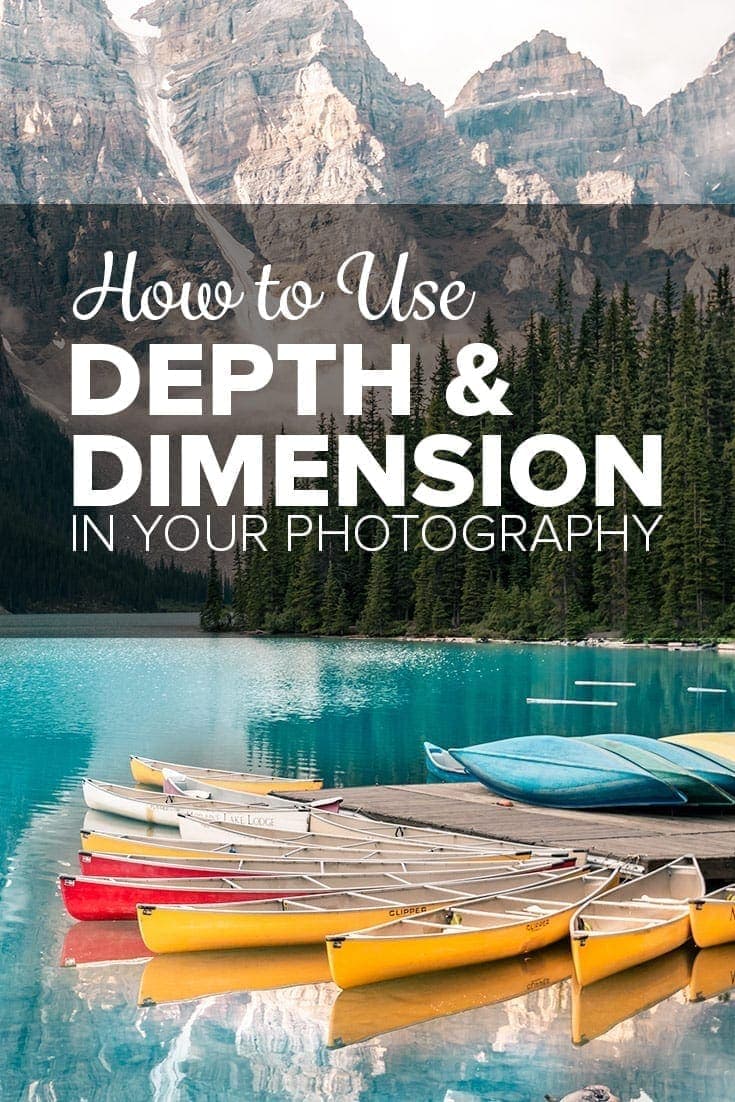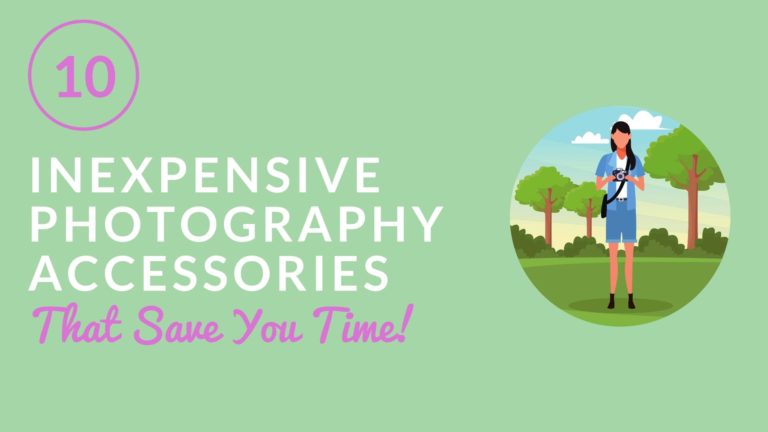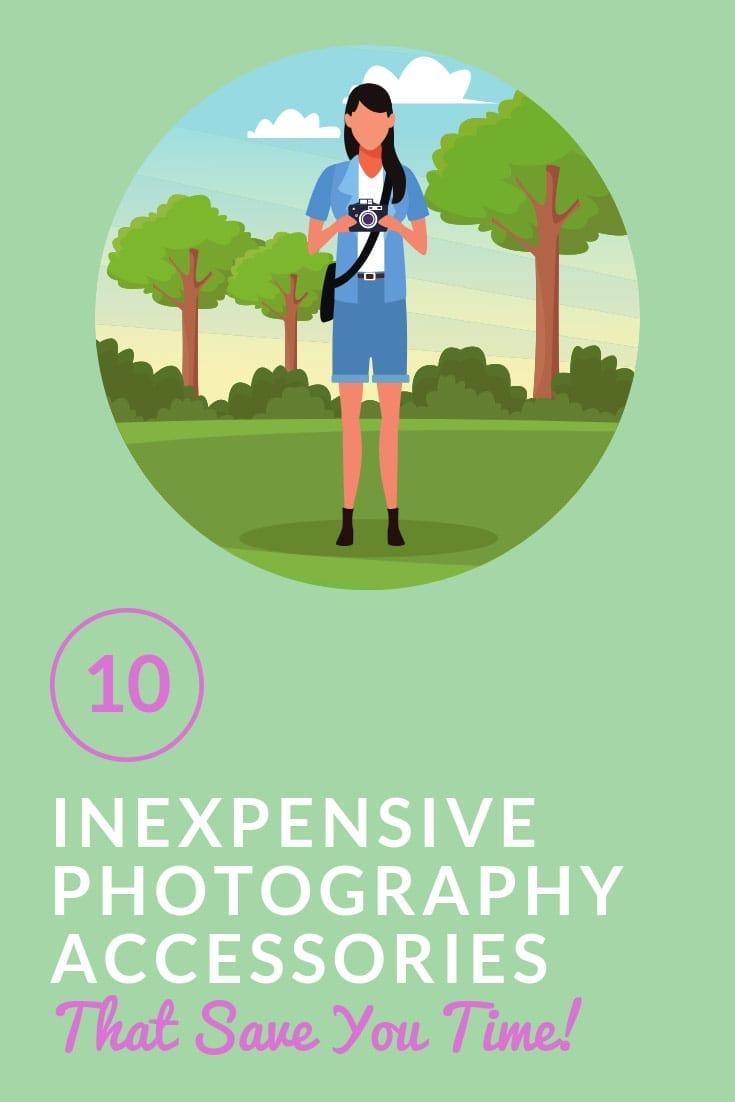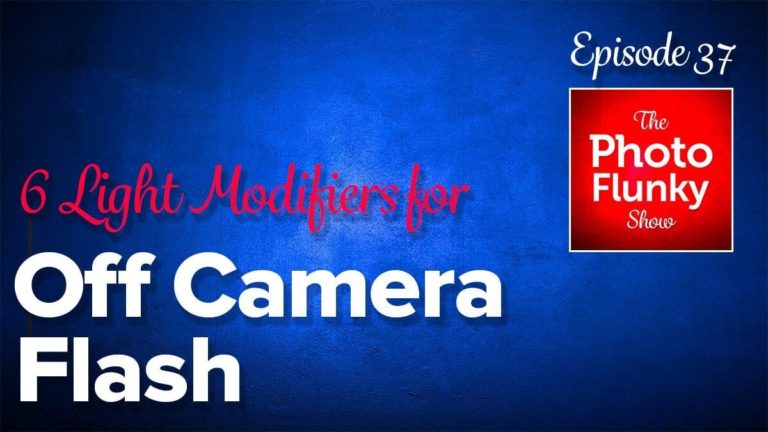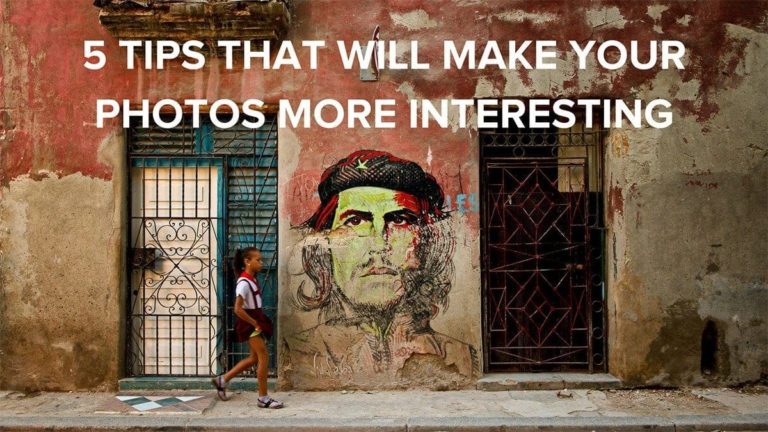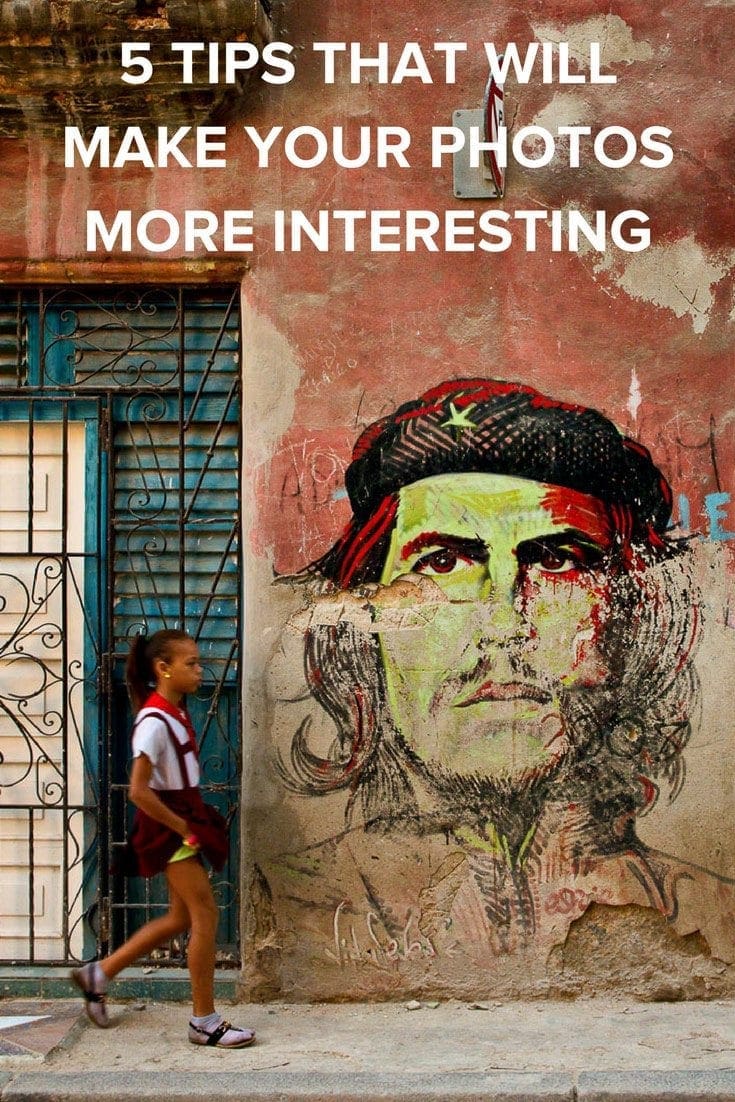Affiliate Disclosure: We earn a commission if you purchase through one of our links at no additional cost to you.
The reason I wanted to share an episode on photography etiquette is that I see some folks who genuinely don’t know when they’re doing something that may be a bit ill-mannered when viewed from another point of view.
The idea of this post, which is part of a broader post on 101 photography issues I wish I knew when I started, is to help photographers recognize some potential pitfalls and see the value in helping each other out.
Photography Etiquette Concepts
I’m pretty sure that you don’t need me to lecture you on manners and photography etiquette. That’s not really the purpose of this list.
Instead, it’s more of a reminder. There are times when we, as photographers, get so involved with our craft that we ignore some things that ought to be obvious. We fail to put ourselves in someone else’s shoes to see how we look.
This list covers a few things that I’ve seen:
Think of this as a list of “don’t be that guy (or girl) when concentrating on your photos.
1: You’ll Try The Patience Of Others
It’s easy to see how this can happen. You’re in the zone while crafting your photos. It’s a time when you can be completely self-obsessed because you’re doing what you love and you’re concentrating on crafting the best photo.
That’s usually when you lose sight of anyone else around you.
This is when you need to be vigilant about getting so deep in your photography zone that you forget to be aware of your surroundings.
Simple manners can slip away when you get too caught up in your own thing, and that’s when you become a bit of a bother to those around you.
2: Others Will Try Your Patience
I can’t tell you how many times I’ve gone to a public place to get a nice travel photo and it was swarmed with a bunch of damned tourists.
The nerve of these people being on my set!
At least, that’s how I’ve felt at times. The truth is that the world doesn’t care if you’re taking photos or not. Some people may notice and pause to let you get your photo, but most folks are blissfully unaware of anyone other than themselves.
They’ll walk right in front of you and your camera, or worse yet – they’ll stop right in front of you.
It’s not rude. They simply aren’t even aware of your existence. So give them a break. Don’t come up with some snarky or rude comment. It’s not about you at all.
3: If You don’t Register Your Photos With The U.S. Copyright Office, Don’t Complain When Your Photos Are Taken
Register your photos with the U.S. Copyright Office to protect them. Check out this article for a step-by-step guide to registering your photos with the U.S. Copyright Office.
I can’t tell you how many times I’ve been on social media reading complaints about how someone stole their photos and used them without permission. There’s a lot of anger and other emotions, followed by very bad advice from people who’ve never actually experienced this issue.
The first thing you need to do is take emotion out of the equation. Filing with the U.S. Copyright Office is the first step in a business decision to protect your intellectual property in case of theft.
You must register before an infringement takes place to have the strongest case for a lawsuit. Failing to register undermines your potential claim.
Remember that filing a copyright infringement lawsuit is a business decision, not an emotional decision. It takes a long time, costs money to do it, and can be exceptionally frustrating.
I’ve been through the process and ultimately won a settlement. That single settlement earned enough revenue to pay for all of my copyright registrations for the rest of my life.
4: Praise Publicly. Criticize Privately, Unless Asked
I don’t often post my photos on social media anymore. It used to be a source of pride to share photos that I took, but not anymore.
That’s because there’s always some jerk who decided to provide an unsolicited critique of my work. In other words, it was a fool who wanted to show how much he (or she) knows about photography and doesn’t care about anything or anyone else.
Don’t be that guy.
Just because someone posts a photo online doesn’t mean they’ve requested a critique. If you like it, it’s polite to let the photographer know. In fact, be specific. Tell them what you like or why you like it.
If you don’t like it, just keep scrolling. Your criticism reflects upon your own reputation negatively when it’s unsolicited.
5: Consider The People Around You
Your photographs may become a gift to humanity once you publish them, but not while you’re taking them. Photography etiquette is partly about being a good person.
Part of this issue relates to #1 and #2 on this list, but there’s a bit more going on here.
It’s not just about being impatient or bothering others at the moment. Think about what you leave behind.
There are some wonderful venues that always welcomed photographers who are now changing their position and requiring permits (with fees).
Why?
Because photographers are becoming an imposition upon other guests. Then they pull out a bunch of confetti or glitter for that exciting shot, but don’t clean up their mess before they go.
We live in a busy and crowded world. Be respectful of others and leave your scene as you found it, or better.
6: Your Photo Is Not More Important Than The Rules Of Your Environment
I like to think of rules much like the Pirate Code. They’re more like guidelines.
That said, part of photography etiquette means that you understand and occasionally mind the rules of your environment.
More often than not, those rules exist for your safety or the safety of others. Try to see the purpose behind the rules of your environment to understand why the rule exists.
For example, if you see a sign just before the edge of a cliff that says not to go any farther, then it’s probably a good idea to obey it. Signs usually don’t go up until someone did something stupid that got them hurt or killed.
The rule against flash photography in entertainment venues is one that I like. Not only does flash kill the ambient lighting for the show, but it’s also very distracting for the performers and others in the audience.
7: Don’t Crush Others To Elevate Yourself
This is truly the killer rule of photography etiquette. Nobody likes a bully or a hog.
I think there’s a line between working the scene to get your shot and just stepping on others to get what you want. You don’t need to be a wallflower and sometimes you do need to assert yourself to get a photo.
On the other hand, I’ve watched photographers who routinely do this and never step back to allow other photographers to get a good position for their photo, or perhaps to get any photo.
Your star doesn’t shine any brighter just because you tried to dim someone else’s light.
8: Help A Brother Out
The sweetest part of photography etiquette is being of service or value to another photographer – or anyone else who needs a helping hand.
We take turns between getting photos and assisting others in group photo sessions. We help those who ask for assistance, advice, or just an opinion.
I believe in karma because I’ve seen it work.
You don’t always get an instant reward for helping another photographer, but I generally leave feeling better about my place in the universe if I can offer a little help. One day, I’ll get the same in return.
It may help your reputation in the photography community or your help may go unnoticed. You don’t do it for the recognition, but just to be a kind soul.
One of my little sayings is “The universe gives me what I need when I need it.” That’s why I don’t worry too much about giving or helping others. I have enough to spare and never worry about what I need in the future.
9: Understand The Word “No”
I don’t like being told No more than anyone else and I tend to question it. However, I don’t ignore it.
There are various reasons why someone denies your access or request. Maybe they just say No to everything because they don’t want to be bothered. I don’t have a problem asking others to see if someone says Yes.
Eventually, you may get stuck with an answer you don’t like. In those cases, don’t take it upon yourself to do what you want. That lack of respect is poor photography etiquette and then people start to hate all photographers.
If someone doesn’t want you to take their photo, don’t take it. If someone doesn’t want to give you access, don’t barge in or sneak your way in where you don’t belong.
10: Don’t Be A Creep With A Camera
The final word on photography etiquette is to consider how someone else may be suspicious of you. I’ve had that happen and sometimes their suspicion was the dumbest thing I’d ever heard. All because they thought I had a professional camera, so I must be up to something.
Abject stupidity is abundant.
You could get upset and escalate the situation or you could find a way to diffuse the issue. Typically, being polite to those who accuse you of something they perceive is wrong can be a touchy subject.
You may not even be photographing the object or person they thought you were concentrating on, and you should realize that – to them – their perception is reality.
You’re perceived as guilty.
So do you show your photos to prove your innocence? Do you just leave?
Every circumstance is different and I wouldn’t suggest that you have to prove that you’re above board. My only recommendation is to be polite and work to diffuse their concerns, but don’t let them harass you.
Good luck out there.
Time Stamps
I would love to sit here and tell you that I am an expert on etiquette, but anyone who knows me can disprove that theory right off the bat. So, however, there is a certain thing called photography etiquette, or at least there is now because I just made it up. And we're going to tell you our top 10 secrets about photography etiquette. I'm William Beem.
Welcome to I Like Your Picture. The show that helps you improve your photography with visual storytelling. What is visual storytelling? It's a method of approaching your photography with a knowledge of who you're trying to serve with your photos and what emotion you want to make them feel. We encourage you to concentrate on your subject, light and background to create a photo your audience loves.
I'm glad you found us. Hi, my name is William Beem, and this episode is all about how you should behave as a photographer. And if it sounds like I'm being a little bit preachy, that's not really my goal. What I'm trying to do is give you some lessons of let's say etiquette or manners that I have seen among other people when I'm out and about doing photography.
Some on the photographer side, mostly on the photographer side, some on the social media side. And I just kind of want to bring these things up because I don't hear people talking about them. I thought, well, Maybe that's why so many people don't seem to know. That may be why they don't know. And I thought who better than me to talk about etiquette?
All right, let's start off with our things. I want you to be able to take away. And the first one is the, your etiquette is your reputation. In other words, the way you behave in public, whether it's online or in-person, that's the reputation that people believe about you. Number two, be helpful, not selfish. And number three,
this is one of my favorites, and it's really hard for a podcast. Host talk less than others. Like you always talk less than your wife. See how I didn't say anything there? And I just kind of, Alright, look, we've got 10 points here. Let's go ahead and go through them. I'm going to throw this one at Lee because she is my wife.
And I always give her the first option. Number one, you'll try the patience of others. Oh goodness. I wonder why that particular one was given to me. You understand what I mean by that? Well, you know, they Say pressure turns coal to diamonds. And I like to try people's patience because I think it makes them a better person.
No, I've put this one up there because it really goes both ways. There are some people who are obstinate, obnoxious, everything's got to be their way. And everyone around them is kind of rolling their eyes. Then there are people who are very kind and they don't step up enough. And as a result, they don't really get what they want because they don't want to try the patience of others.
So there's a balance between, yeah, you got to push a little bit to get something, but you don't have to steam roll over everybody else in order to get something Also on the other side of that, if somebody is trying to be helpful to you, whether you ask for it or not. I mean, sometimes people offer something or if they,
you know, they'll come and help you. And especially if it turns out that they're also a photographer, photographers love to show off how much they know, especially to another photographer. And I think where my patience has been tried is when I'm setting something up, someone's given let's, let's say on an occasion where somebody has given me some help and it's actually being useful.
It's okay, I've got it from here. And they won't stop trying to help. I don't have the most filtered mouth. So I kind of stay polite up to a point. And then I'll just turn and say, okay, you can leave now. And that's when someone who's really pushed the patience. And that really is our number two others. We'll try your patience.
And that's the circumstance. If you're helping somebody out and you're pushing too hard, you're going to try the patience of others. If you're asking for help. And then they just don't know when to stop. That's when others will try your patience. But that's not the only circumstance when someone can try your patience as a photographer. People like to order photographers about.
Even if they're not paying for the photographer. We have friends, obviously who, who do weddings and they are there as a service. You know, so they want to get the photos that everybody else or excuse me, the bride and groom are looking for because those are their memories. And then there's always the loud mouth aunt or uncle shows up at the wedding who starts telling the photographer,
oh, you got to get this, come over here and do this. Well, no, you're busy working on something for your client. These people, you want to respect them because they're part of the wedding party. They're part of, you know, the, your client's relationship in life, but you can't necessarily just piss them off for lack of a better way.
Others will try your patience. In my experience, sometimes those are people who really have nothing to do with what you're trying to do. And sometimes you may be working with a subject that is just a full tilt diva, Exhausting. And when I say subject, I don't necessarily mean a portrait subject. There are times when I've gone in to photograph some buildings and some architecture or a museum,
and there are security people there who know nothing about photography, they just know what they're supposed to protect. And they will scream at you for this, that, or the other. The one that comes to mind. I've shared this story before. It's like going to the Stratosphere in Las Vegas. When you go up to the top of the Stratosphere, if they have signs posted,
you are not allowed to take a tripod. It's a safety issue because you're up there, there's high winds and you can't take a tripod. I was in line to go. The guy in front of me had a handheld tripod. I'm talking about like this little Manfrotto Pixie-sized thing that fits in the Palm of his hand. Security guards screamed at him.
You're not allowed to have a tripod. I thought you could do this another way. I go there. I open up my camera bag and she pulls out something I have, it's called a magic arm. Basically. It's a variable friction thing. So it bends in a couple of directions and I've got a clamp that you can clamp it onto a railing. And then that kind of gives you a little bit of stability.
And she pulls us out. She says, you're not allowed to have a tripod. She screamed at me the same way. She screamed at him and maybe a little bit more because she just screamed at somebody. And I said, it's not a tripod. There are no legs. And you should've seen the look on her face. It's like her eyes popped open and her mouth made this little,
oh, and she said, okay, you can go. She didn't know how to answer that one. Well, Look, she knew her rules. No tripods allowed. Doesn't matter the size. I mean, you could have a one inch tripod and she would still take that away from you. She was kind of trying the patience of people who just want to go up there and take a photograph.
They didn't necessarily need it as a tripod to set on something. The guy who had a tripod in front of me, it was kind of like a handheld grip and he couldn't take it. You know, they confiscated it from him and he could, I presume pick it up later when he came back down, there are multiple ways that you can be tried by people who around you and try your patience.
Same thing happened at the National Museum of Air & Space. I went there. They don't allow tripod. So I set up the same rig. Security guard came out, told me no tripods allowed. I said, it's not a tripod. And he also came back. He went off and checked with his bosses. He came back said, okay, you're good.
If you're polite, you can usually get past the issue of other people trying your patience. If you blow up at them, then you're probably not going to get any photos at all. There's no point doing that. All right. Number three, if you don't register your photos with the U.S. Copyright Office, don't complain when your photos are taken and used without your permission.
When, because nowadays it seems to be just a general thing. We've got almost an entire generation that has gotten used to the internet and anything that's on the internet is free for the taking. So if you put it up, it's for the public. That's what a lot of people think. These people are wrong, but that's okay. I have been through a lawsuit for someone who took one of my photos and used it without my permission.
I won a settlement. Not as much as I would have liked to have won, but you know, I got a few thousand bucks out of it. And they thought that because it was on Flickr, they could just scrape all the photos off of there and put it on their own photo-sharing site. They were wrong. Another thing that came up was with Instagram,
people would take an Instagram post. They'd embed it on their website. I thought, well, okay, I didn't really steal the photograph, even though I'm displaying it on my own site, because it's linked to Instagram. And about a year ago, Instagram came out and says, no, you are not granted a license to the photograph because we don't own the license to the photograph.
If you're displaying it and you're using it, the originator is the one who is responsible for the copyright. They own the copyright. They can tell you, take it down if they want to, but here's the problem. Everybody's got this little thing. As soon as he creates something it's protected by copyright. To an extent that's true. The problem is when you want to sue.
When you go into a federal courthouse and that is federal because copyright law is federal. The first thing the judge is going to want to see is a valid registration. That's the key to a lawsuit. If you want to be able to sue for someone illegally using your photographs, then you need to have previously registered them with the U.S. Copyright Office. And I only know U.S.
I can't tell you anything about anywhere else in the world. That's outside of my scope. I am not an attorney. This is not advice. This is simply what I've learned having gone through a copyright lawsuit. So when I say valid registration, you need to have registered this before the infringement took place. Yeah. So if someone steals your photo and then you go off and register it,
you don't have as strong of a case as you do if you registered your photographs with the U.S. Copyright Office ahead of time. It's very simple to do. It's very inexpensive to do. I used to bulk register photos for $35. So it was worth the protection. I have earned more from suing somebody than I have paid for registering my copyrights. Say,
Sing, someone pays, pays for the thing itself. Now I will tell you this much about a lawsuit. If you can avoid it, please do. Lee has experience working in a law firm and people get emotional and you got to learn that a lawsuit is really a business transaction And it's time-consuming and stressful and expensive. And it takes a really, really long time.
And if you're suing someone who has more money than you and they don't care about the money, they can throw all sorts of motions and delays and tactics that will get you to spend more money. And the idea is they'll never be taken to court, really because you'll give up and run out of money before, you know, things ever get to a trial so people can burn you out.
If they have enough money. And they're just nasty enough to do something like that. Homeowners associations are a good example of that. All right? So the copyright office can protect you. And quite honestly, it can work, but expect to take some time. Number four, praise publicly. Criticize privately, unless asked. Yeah. Unsolicited criticism and comments are just,
I don't know. It's, it's just rude. I mean, I don't see how this is any different to going out and looking at somebody's new pair of shoes at a dinner party and saying, oh, those are terrible shoes. You just, you know that you just don't do that. So why, when somebody shares a photo, do you want to go up and tell them everything that's wrong with?
Well, when somebody posts a photo on social media, unless they're asking for a critique, if you like it, be friendly, say, I like this or say something about it that you don't say something about it that you do. Like, you know, pick something specific. Because in my opinion, when someone praises something specific about one of my photos,
I like that more than that, they just say great photo or something like that. If someone doesn't like my photo, then I will kind of wish they would shut up. Because just because I posted something is not an invitation for critique. Yeah. There are places you can get that and give that. And not every photo that I post is a work of art.
Sometimes I'm just posting a photo because Hey, I was out with my wife and we saw this and we thought, you know, that's not necessarily a work of art. That's social media. Yeah. And someone comes in there and criticizes my crop or my composition or something. It's like, I don't care. Your opinion is meaningless to me. If you're talking about that.
And I'm posting a photo of Mickey Mouse at a parade. That's where you need that shirt. Your stupid little opinion has been noted, But this is part of your etiquette. You have absolutely nothing to gain by publicly criticizing someone else's photo who did not request a critique. And even if they did request a critique, be polite, back up your criticism with alternatives of what they could have done or why something doesn't work.
Maybe the contrast isn't enough, or maybe they cut off somebody's feet in the photo, whatever it is. If you're an offer a critique that was requested, be specific about your critique. There's a huge difference between criticism and a critique. And I think people get confused with that. A critique is actually a step by step on how, you know, what could have been done differently and then suggestions on how to do it differently or things you could try.
Whereas criticism is just spouting your mouth about everything you don't like, which is great, but not on somebody else's stuff without or request. An example of this, I've been to a portfolio review with some folks before. One was with a guy named Mike Kubeisy. He is a Hollywood photographer. He works on NCIS and he's also got a film that came out where he did the photos.
Really great guy, really great photography. He was a perfect person to give me my portfolio review. And when he did, there was one where it was a model holding a wine glass. And I had the back of her wrist facing the camera. He said, it looks a little fat that way, if you had twisted her to kind of show the edge of her wrist,
instead, it would look more slender and therefore more appealing. That's a critique. Yeah. And one of the reasons I remember that so much and value it is because it was something that I'd never been exposed to before, or that whole concept. I hadn't thought of it, but I realized he was right. As soon as it came out of his mouth.
That's helpful. What you say reflects more upon you than it does on the person that you're criticizing. If you do so publicly. Number five, consider the people around you. There are times when photographers kind of zone in on what they want and they stop. And they don't think about anyone else around them. Damn. All these tourists are in my way.
Yeah. There's more than one time I've said that to Lee. I wish, I wish all these tourists weren't at Walt Disney World. You've got to consider that the people around you have a right to be there if you're in a public space. You've got to consider that everyone has feelings and emotions. Everyone has a right to be doing what they're doing more or less and less they're stealing something or shooting somebody.
And just because you have a camera, doesn't mean that you have superior rights to anybody else. And generally, if people know that you're taking a photo or that someone is taking a photo, most of us are quite happy to step back for a little bit, let you get the shot. But then they expect you to move out of the way and let everyone else get on about their day.
I don't like the traffic stopper photographers who want to just take up all the space. And they've got stuff all over. And it's almost like, well, road closed because I'm getting a shot. It was like, well, how many shots do you have to take to get the one you need? And when you're sitting there trying to do a composition,
somebody just walks right in front of you. You may think that they're being rude, but the truth is they don't even know that you're there taking the photo sometimes because they've got their own issues and problems going on. They're just walking from where they're going. A lot of people will see you and they'll stop themselves. They may walk around behind you or they may wait or something like that.
Well, if somebody waiting on you take your shot and don't hold them up. But consider the people around you. They have rights to be where they are and you don't have any rights over them. If you're in a closed studio and you're the director of everything, that's different. But also keep in mind, don't upset the people who are working to help you achieve your goal,
because they might go someplace else. Number six, this is kind of related. Your photo is not more important than the rules of your environment. So if you're told, don't go beyond this line, that's probably for your safety. Just because you think your photo would look better. If you were on the edge of a cliff, doesn't mean that you really have the right to do that.
Or it's smart to do that. No, but you can probably shove your camera a little bit further off than your body's allowed to go. Yeah. I mean, look, we're not afraid of bending rules. We don't go outright and break them. Most of the time. Lee does, you know, but I don't, I'm thoughtful that way Break rules that are stupid. Or perceived. Alright,
I can't help it. Tell this story. Out in Magic Kingdom, there's a little section called Liberty Square and they have a replica of the Liberty bell, and there's a little white picket fence around it. But Lee believes that bells are meant to be rung. And, and there's no sign that says that you cannot ring the bell. No, But do you see what they've done?
They've put the little picket fence around, which is it's aesthetic. But at the same time, it's almost like this hidden, well, it's not really a rule, but when we put the fence up, everyone's going to think it's a rule. It's like a little force field. It keeps people from touching the Liberty bell. They don't want everybody up there touching it,
rocking it and ringing it. But Lee said, you know what? That's a perceived role. And she went up there and rang that bell. And everybody looked and you know what, no harm came to anybody. Nope, and I've done it more than once. And you get the same thing every time. I don't know what we haven't been back for years.
So I'm not sure what the setup is there. We haven't been there for years and we're not likely going anytime soon. But the same thing is true elsewhere. There are stories about Instagrammers who are hanging off of cliffs or train, and then they die because they fell off and that's due to gravity. I'll say called Darwin awards. Keep in mind that story
I told about places where you're not allowed to take a tripod. Well, that's the rules of the environment. If the rule says no tripods, don't try to sneak it in there. Don't try to be a jerk about it and say, ha ha. I got by on that one. No, you're just a jerk. Your photo is not more important than the rules of the environment. You work within the rules.
So if you're going out into nature, the rules of the environment are don't touch the animals. Don't bait the animals. Don't pet the animals, pose for selfies with the bears. Wildlife is wild. There are some photographers who go out there and they'll put down bait trying to attract an animal there, but you're changing the behavior of the animal. So it's no longer really a natural thing.
And also that has lasting repercussions because the animal says, oh good. People give me food. I'll go up to more people, Which is not exactly what everybody else wants. Especially when It's a bison. So, So please respect the rules of the environment. All right. Number seven, don't crush others to elevate yourself. This is kind of a rule in life,
anyways. You don't shine brighter just because you dim someone else's star. Yeah. That's true. The idea behind not crushing others to elevate yourself is basically you don't get in the way, you don't block their shot. You don't make sure that you're always the one who has the best spot. It might feel good at the time. If you could, let's say that you're on a workshop,
you know, and you're always the one who's right there, elevating yourself and by doing so, you're denying others an opportunity to have the best spot. Share. Be helpful. You know, it's like you don't want to be selfish. And that's really what I mean by don't crush others to elevate yourself. It's just trying to be considerate. And number eight, help a brother out.
And it could be very simple. There are times when someone else needs a hand, maybe they need a hand holding a light. Maybe they need a hand holding a reflector. Or blocking some shadows, Or maybe they just need a lens wipe. It could be very, very simple. Photographers, I think do best when they help other photographers. And if you just help someone out that helps your etiquette,
it helps your reputation and you become known as someone who's nice. What a concept. I've actually lent somebody a camera battery before. I had a point and shoot and I also had a, I had something. I had two cameras with me basically, and we'd been standing we're at Disney World. This is probably about 12 plus years ago. So Tové was really little and there was a long line for one of the Disney princesses and been standing there for about 40 minutes.
There was a couple with another little girl in front of us and we were almost there and the dad pulled out the camera and open. He said, oh, he said, I forgot to bring the battery. And I looked at the camera and I thought, that looks like it takes the same one. That the camera, not the one that I was going to be using to take my photo, would take.
What would you use? And we checked it. And I actually was the same. I said, well, use this battery, get your photos, wait for me. You know, when you've done. Obviously, there took a bit of faith and trust that they weren't going to run off with the battery. They were really, really grateful. And I think sometimes people do help you out.
I've had people like you say, giving me lens wipes, or giving me like a clear plastic. When a rain shower started just to throw over my stuff. People are actually nice. I think we've just got this idea when you go out that everybody's out to get you. And I don't think that's true at all. Generally, I find that if you're nice to people,
people are nice to you. You can call it karma or whatever you want to. You know, you reap what you sew. If you help other people out, don't be afraid to be the first person to help somebody else out. And you might find that it comes back to you in ways that you did not anticipate, right? Number nine, understand the word
"No." No. Understand the word. No. And there are times that you want to take photos and someone says, no, you can't take that photo. And I go ask somebody Else. Or there are times when you want to take a photo of someone and they say, no, I don't want my photo taken. There are signs. And I have a lot of pictures of these signs.
No cameras allowed or no photography. I love taking photos of those signs, but I don't go beyond the sign to take photos inside when I don't have permission, because it just opens up a little world of hurt. There are times you can see something, but there's a barrier between you and you can't cross the barrier because that is the word no written in various words.
Yeah. Look, I don't have a problem with if people don't want photos taken often, it's with good reason because usually something to do with the flash, being a distraction to everybody else. I have no problem with, you know, requests not to bring cameras or take photos. Look, there are times when, if it's clearly visible and you're on the other side of the barrier,
take all the photos you want. I don't have a problem with that, but there's going to be a point where the answers to, can I take that? A photo of that subject is no. When I went to a tour of the U.S. Capitol some years ago, I was not allowed to take my cameras or even my iPhone inside of the congressional chamber.
Because at the time the rule was no electronic devices, no cameras, other than the ones that you know, the government provides and they have with, for the press. That was that. I could not take a photo that I wanted, even though I could go in the room, sit in the chair, look up at the speaker's dais or whatever it's called,
but I couldn't take a photograph. And that's just the time when, okay. Enjoy the experience. Yeah. The answer to, can I take a photograph of this was no. They let me take photographs of almost everything inthe Capitol. I had a private tour. I got a lot of wonderful photographs, but I couldn't take that one. What I could do though,
was stand outside the door and photograph down the aisle. And that was okay. So sometimes the word no is dependent upon how you ask the question. Yes. Finally, number 10, don't be a creep with a camera. Don't be hiding behind it. Don't start. Don't Be lurking in the bushes. Don't be trying to take pictures of women's butts. Don't be trying to take pictures of people's children that are not asking you to take photographs of their children.
If you're being surreptitious and creepy and rude, first off, it's bad for your reputation. Second off, you might get your butt kicked. Also, remember that it's perception. I mean, sometimes you don't mean to look like you're hiding somewhere. There might be a valid reason why you trying to stay out of the way, but I think you always have to be aware of how things are perceived.
I mean, I've been, it's been suggested to me, are you taking pictures of, you know, whatever, and I'm looking, I'm getting no, but you know what? Take a look. My camera's pointed in a totally different direction. Occasionally I'm just kind of dumbfounded by stupidity or paranoia. And so I, you know, I'm quite happy to show them the nice few photos on the LCD and usually
then it's an okay. But I think it comes down to, you've also got to be aware of how things look, not just what your intention is. Yeah. And I look at this from a couple of different angles. People who have young children are very paranoid about someone taking photos of them. It's not going to hurt the children at all, but they wonder what's your intention.
Yeah. Same thing. We have a daughter who's about to turn out of her teen years. And if I saw somebody who was taking pictures of her without her notice, I would think that would be creepy. And I'd probably walk up to them. Yeah. We would walk up to them. But those are the things we say. Don't be a creep with a camera.
In other words, if you're taking pictures of people who are unaware, it's a little different than street photography. When you're doing street photography, people are out in a public place. They have no expectation of privacy, but you're also not getting them in something that I would probably call a compromising photograph. And like somebody who's working like you, maybe you've got a picture of a fishmonger.
Who's throwing out the fish. I don't think he's going to be very worried. He's probably going to see that you have a camera anyways and understand that you're taking a picture. And if you want to, you can talk to these people before you take their picture. And send them their pictures. Have you ever done that? I used to love doing that on the,
on trips. They'll give you like an address or an email address. A couple of times, you know, years back, I actually printed things and mailed it to them. But people are usually more than happy to give you, you know, here's my Instagram or here's my whatever. And you can send me a message like that. You no longer need to give a personal cell number or an email address,
you know, to be able to share things. And they get it. The idea for street photography, the idea for street photography is that you want to capture something in the moment and it's like a slice of life. What slice of life are you capturing? Because there's a fine line between being a voyeur and a creep. Yeah. And even the word voyeur kind of has some creepy connotation to it.
But you know what I'm talking about. There are a lot of street photos that I'm glad that we have, you know, the most famous one that I can think of is the sailor kissing the nurse at the end of World War II. You know, it would have been very different if the photographer had gone up to him, tapped him on the shoulder,
say, excuse me, I'd like to get a picture of that. Could you whip her over and kiss her again? Oh, it's like that, that wouldn't work, but don't be a creep. And I think we all know that because every single one of us has a father, a mother, some of us have brothers and sisters. Some of us have children and you know how you would want them to be treated.
So think about your family, your loved ones when you're taking photos in public. And I think that for most people helps people understand what may appear to be creepy. You may not be thinking about being creepy at all when you're taking your photograph, but the other people around you may wonder exactly what's going on in your head. So when I say don't be a creep with a camera,
have a little presence of mind about how it may be perceived in public. And some people have completely irrational notions about public photography. And I can't help that. But if you're not doing anything that's a little creepy, then you're in good shape. I think. Thank you so much for joining us on I Like Your Picture. This was episode 276.
Show notes are going to be available at williambeem.com/episode276. What a surprise that I use that address. Hey, please come back and join us next time. We're going to have an episode about 10 secrets of composition. Hopefully, we can give you some ideas about how to make better compositions for your photos and give you some things to think about that maybe you hadn't thought about before.
We'll see you in the next show.

